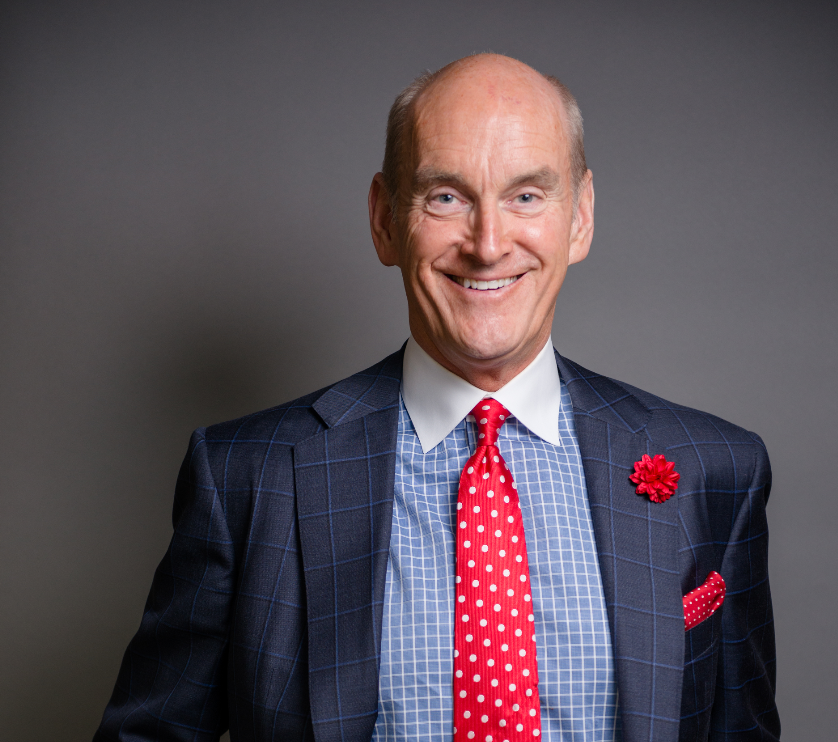Note: This is part two of a five-part series. Over the following weeks, Todd Duncan, sales entrepreneur and New York Times best-selling author, will showcase principles for mortgage and real estate professionals to embrace for success. To read his first piece, click here.

Guest Author
Last week, I introduced you to a word that governs all success and happiness. I suggested that if you embraced this word, and used it in all your pursuits, you would have access to a deeper purpose, and would accelerate your performance in ways that would redefine your life and business forever. That word is Principles.
Principle No. 1: Everything can be improved.
A vigilant and consistent eye towards improvement is the fast track to compounding your success. This week I want to introduce you to Principle No. 2. But before I do, I want you to answer a few questions. Do you have goals you want to attain but have not? Do you have areas of your life you want to improve but have not? Has more than several months gone by since you thought about doing something and right now you haven’t started? If you look back over the last year, have you accomplished the important things in your life? If not, why?
I ask these questions to frame this week’s conversation around Principle No. 2: Success can only be built on failure.
If you own in totality Principle No. 1, that everything can be improved, Principle No. 2 supports the action to make Principle No. 1 work. Because all things can be improved, your attitude towards failing, in the attempt to improve, should be fully and excitedly engaged each and every step of the way.
Most people associate the words “fear” and “failure” in the same thought. That is where it goes wrong immediately. Here’s why: Would there be such a thing as “cold” if there were not such a thing as “hot?” Of course not; those “opposites” must exist for either cold or hot to have meaning. Would there be such a thing as “dark” if there were not such a thing as “light?” Of course not; those “opposites” must exist for either dark or light to have meaning.
To that point, would there be such a thing as “success” if there were not such a thing as “failure?” Of course not; those “opposites” must exist for either success or failure to have meaning. The Principle unfolds with this simple truth: The possibility of failure must exist to create the possibility for success. In other words, failure is the necessary ingredient for success to happen.
When I look at top producing real estate and mortgage practices, in route to being top performers, there are three mindsets they have around thinking different about failure:
Mindset No. 1: Failure is a good thing; early failure is a great thing
There is nothing negative about failure unless it occurs through absence of intentional trial and error. Otherwise, failure is the proof of how something doesn’t work. Each discovery gets one step closer to success.
Mindset No. 2: Failure is positive
Because of a positive attitude towards failure, success occurs more quickly, and remains more permanently as an outcome of new and improved actions. New habits and compounding are the outcome.
Mindset No. 3: Failure is disruptive
Embracing failure creates a competitive advantage. Because most fear failure, they cannot offer the same value propositions and they get lost in the masses with no distinct reason to standout. The person that handles failure the best is attractive in the marketplace.
Mindset is everything when it comes to embracing Principles for success. I came across a mindset embraced by Henry Ford as he transformed the transportation business over 125 years ago, when he said, “Failure is just a resting place. It is an opportunity to begin again, more intelligently.” That’s solid advice. Action promotes progress. Progress promotes confidence. Competence, confidence and consistency are all part of the success equation and none are accessible without a healthy attitude towards failure.
One of the laws I teach in my book, High Trust Selling, Make More in Less Time with Less Stress is The Law of the Dress Rehearsal. The law states, “Practicing Your Lines Elevates the Level of Your Performance.” It is profoundly important to own the idea that you play like you practice.
It is equally important to understand that if you practice more than you play, when you play, you will look like you have practiced. You, your clients, and your world need you to be “game ready.”
I had a conversation years ago with football legend, Joe Montana. We were chatting at a function and I asked him, “how many hours do you spend preparing for a football game each week.” He took a moment, went through a mental checklist, and said, “I’m guessing about 50 hours.” No wonder he is in the Pro Football Hall of Fame.
It birthed in my mind the essential question for success, and how to use practice as the insurance policy to minimize failure. The question was and is, “What is your practice to play ratio?” In Montana’s case, it was 50:1; 50 hours of practice for one hour of play. There you have it – the purpose of practice is to minimize failure and optimize success.
When COVID-19 hit, we had to pivot. There was no certainty when we could resume doing live events. Inside of four weeks we assembled a new strategy, remodeled our recording studio to state of art standards, 4K recording quality, high speed streaming, and almost anything else you could think of to create a beautiful customer experience. But we need to test it. We’d rather fail small than fail big.
In a nutshell, we did a trial digital live stream event for 20 people. A lot of lessons. We fixed them.
Then we did a digital live stream event for 100 people. A lot of new lessons. We fixed them. Then we did a digital live stream event for 4,000 mortgage brokers. Fewer new lessons and confirmation that the fixes worked. We have converted our flagship event, Sales Mastery, into a Global Live Digital Experience on September 16-18. We’ve done this event for 27 years. We always get around 2,000 people to attend.
Right now, with eight weeks to go, there are over 24,000 registrations and it looks like we will hit 50,000. I share this story only to state that all of us, every single one of us must continually grow and we must always test, and we must always have a growth mindset around failure.
Where do you need more practice? What new behaviors are necessary for you to play at a higher level of competitiveness in the market? What skills are you trying to get good at that are not in your DNA, that you will never be good at, and that suggest a different course toward delegation?
Perhaps even more poignant is this question – as a lender, “do you have a 100% conversion rate of borrowers to contracts that close?” Every borrower who doesn’t go with you is a “failure.”That should force a conversation, “where are my scripts weak? Have you perfected what you say to convert a borrower to a client? If not, try new things, use different words, connect at a deeper level.
Mistakes will happen. Learning from them is optional.
If you embrace Principle No. 2: Success Can Only be Built on Failure, you will never fail again!



